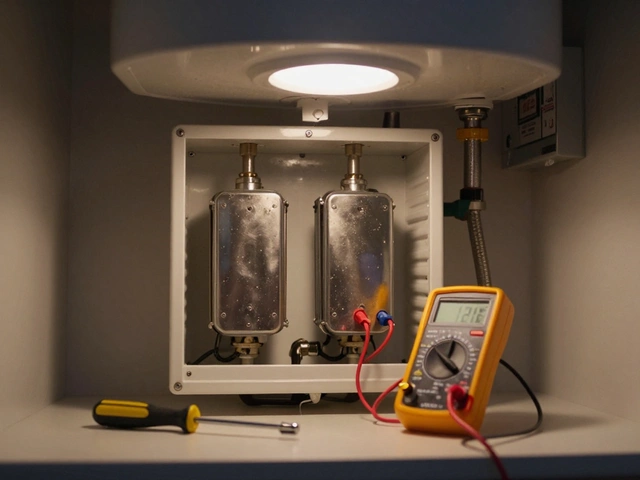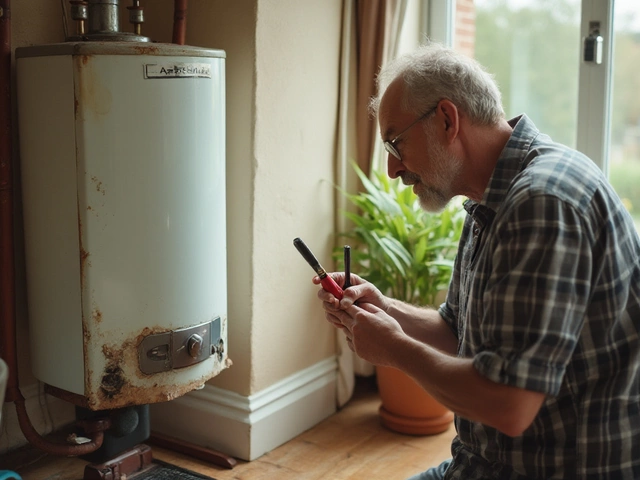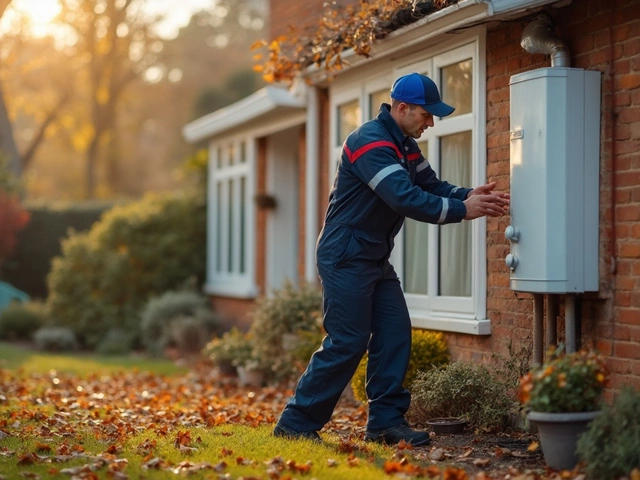Most of us try to fix a broken fridge, oven, or washing machine ourselves. That spirit saves money, but it can also lead to bigger problems if you go too far. Knowing the line between a simple DIY fix and a job for a qualified technician saves you time, money, and headaches.
Simple tasks like cleaning a dishwasher filter, resetting a water heater, or swapping a broken hob element usually need just a screwdriver and a bit of patience. For example, a cold oven often means a dead heating element that you can replace in under an hour with the right tools. Likewise, a kitchen extractor fan that makes less noise than before might just need a new motor or a cleaned blade.
These fixes share a few traits: they involve visible parts, require no gas or high‑voltage work, and have clear step‑by‑step guides. If you can locate the faulty part, see a clear diagram, and the repair doesn’t involve opening sealed systems, you’re probably safe to try it yourself.
When the problem is hidden behind the front panel or involves electricity, gas, or refrigerant, call a pro. A heat pump that stops blowing warm air, a boiler that keeps resetting, or a fridge that won’t cool but still lights up are typical red flags. These appliances contain sealed components and high‑pressure systems that need certified handling.
Other warning signs include strange noises that you can’t identify, repeated breakdowns after a quick fix, and any repair that requires you to disconnect the main power or gas supply. If you’re unsure about the safety steps, it’s best to let a qualified engineer take over.
Professional technicians also bring tools you likely don’t own, like pressure gauges for boilers or refrigerant recovery units for heat pumps. They can perform thorough diagnostics, spot early wear, and advise whether repair or replacement makes sense.
In short, if the repair involves the inner workings of a heating system, complex electronics, or sealed refrigerant loops, book professional help. It may cost a bit more upfront, but it prevents costly damage and keeps your home safe.
So next time an appliance acts up, check the symptom list, see if the fix is visible and safe, and decide if you’re comfortable handling it. When in doubt, a quick call to a trusted repair service can save you from bigger headaches down the road.

Extractor fans are crucial for maintaining fresh air and reducing humidity in various parts of a home. When these fans malfunction, it's important to know who to call for repairs. This article guides homeowners on how to find reliable extractor fan repair services. We'll look at why professional help is essential and what to consider when selecting a repair technician.

Want to know how much Geek Squad at Best Buy will charge for fixing your laptop? This article breaks down their pricing and services, so you know exactly what to expect before you hand over your device. You'll learn what affects the cost, whether a protection plan is worth it, and get the lowdown on real-life repair scenarios. Plus, there are tips to help you save some cash or avoid common headaches. No tech jargon or fancy lingo—just straight answers.

Fix a water heater producing cold water by checking the power, testing heating elements, adjusting the thermostat, flushing sediment, and replacing faulty parts like the dip tube or thermocouple. Most issues are simple DIY fixes.

Nobody wants to deal with a stuffy bathroom or smoky kitchen, but if your extractor fan isn’t working, that’s exactly what you’ll get. This article shows you how to check if your extractor fan is doing its job or just taking up space. From simple power checks to quick airflow tests, you’ll learn hands-on methods anyone can use—no tech wizardry needed. Expect practical tips, a couple of helpful tricks, and signs that tell you when it’s time to call an expert. Don’t let stale air hang around: let’s figure out what your fan is up to.

Water heaters are essential in our daily lives, yet they often fail more quickly than expected. Understanding the common causes of these failures can help in preventing them. In this article, we delve into why water heaters often break down prematurely and offer practical tips on extending their lifespan. Regular maintenance and awareness of common issues are key to ensuring your water heater runs efficiently for years.

Replacing a boiler can seem like a daunting task, but knowing what to expect can make the process easier. Typically, boiler replacement involves several steps including removing the old unit, choosing the right size and type for your home, and ensuring proper installation. Skilled professionals often make the experience smoother by handling the technical aspects and minimizing disruption. Preparation and understanding of the process can help homeowners tackle this job with confidence.